

KENNESAW, Ga. | May 21, 2025
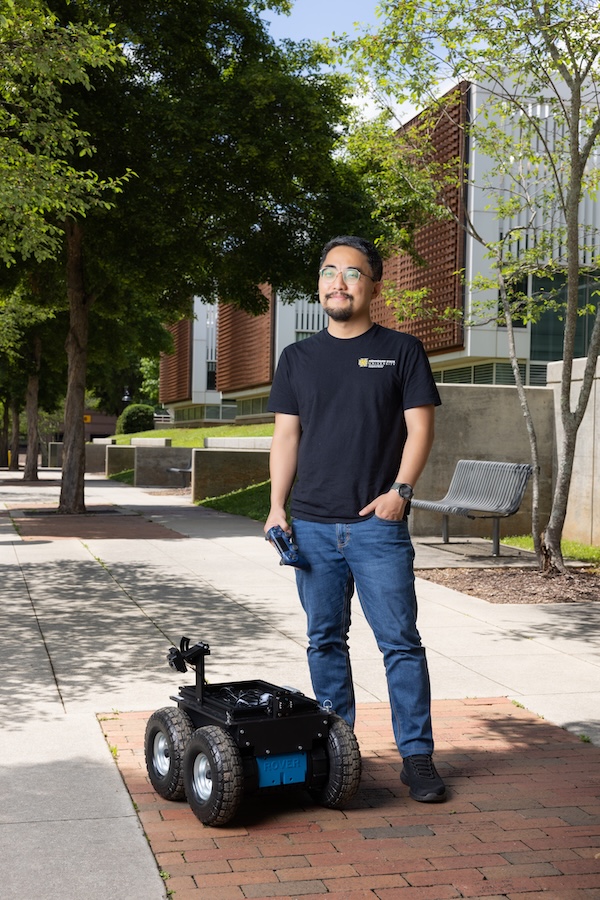
Currently a research concept in development, MocoBot is a low-cost, AI-powered robot that uses night vision and autonomous navigation to detect and remove pests from strawberry fields without chemicals or human intervention.
Conceived by assistant professor Taeyeong Choi, MocoBot uses night vision cameras and artificial intelligence to autonomously navigate strawberry fields, detect slugs and snails, and remove them without human intervention or harmful chemicals. Unlike conventional pest management methods, which can damage the environment by blanket-spraying pesticides, MocoBot offers a targeted, sustainable solution.
By capturing specialized nighttime imagery and training AI models to perform in low-light environments, MocoBot is designed to operate when pests are most active, giving farmers an edge they’ve never had before.
“This approach is innovative because it brings AI and robotics into a space where solutions have traditionally relied on chemicals or manual labor,” said Choi, whose research is supported by a Southern Sustainable Agriculture Research and Education grant. “By targeting pests with smart technology, we can help farmers reduce crop loss while protecting the environment.”
But beyond seeking an efficient and sustainable solution, Choi said an emphasis was placed on creating a cost-effective option for smaller farm operations.
"We realized a lot of farmers can’t afford high-tech robots," Choi said. "We’re committed to keeping MocoBot cost-effective by using inexpensive robotic platforms and simplistic AI models. This, in turn, ensures that performance remains high without requiring costly, high-powered hardware.”
Choi and his team have been working with local farmers and the KSU Field Station to gather a wide variety of images showing pests in different poses and conditions, ensuring their AI system can adapt to real-world complexities.
"There’s no existing database of snails and slugs in agricultural environments, especially at night," Choi said. “Working with the local farmers has always helped us to expand our research and make a better product.”
Before entering the strawberry fields, MocoBot underwent a three-part training process. First, the device is trained to detecting pests. Then, a robotic arm is programmed to pick up pests and remove them from plants. Finally, the robot is trained to safely navigate fields without causing damage to the crops.
Choi envisions MocoBot as the start of a larger interdisciplinary effort. His long-term goal is to expand the technology to detect and remove other types of pests across various crops.
"Food security is a growing concern as the global population increases," he said. "By helping farmers reduce pest-related losses without harming the environment, we can make a real difference."
CCSE Dean Sumanth Yeduri praised Choi's innovative approach to a common agricultural dilemma.
"Dr. Choi's research on MocoBot is a perfect example of how our faculty are pushing the boundaries of technology to solve real-world problems,” he said. “The interdisciplinary collaboration between our computer science experts and agricultural workers is leading to innovations that can significantly impact sustainable farming. We are incredibly proud of Dr. Choi’s efforts and the potential MocoBot holds for the agricultural community."
– Story by Raynard Churchwell
Photos by Matt Yung
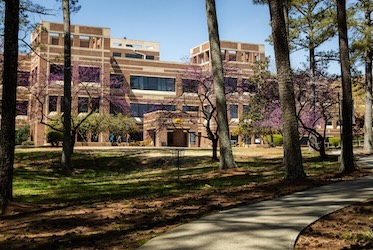
Kennesaw State University to launch Bachelor of Science in Artificial Intelligence in Fall 2026
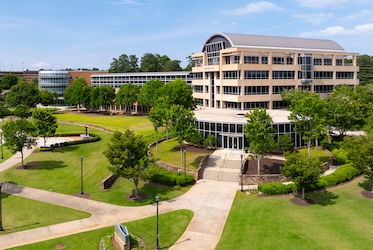
Kennesaw State among nation's top universities for online degrees in U.S. News rankings
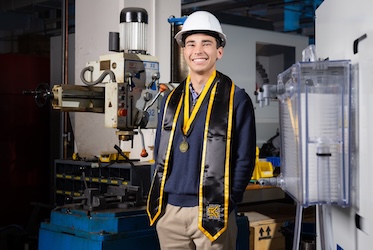
Discipline and determination drive track and classroom success for graduating student-athlete
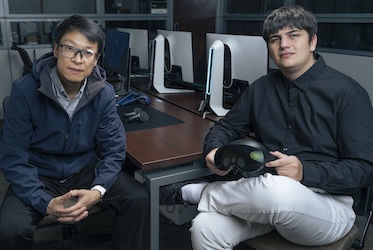
Student, faculty researchers explore how AI can improve STEM learning through virtual reality
A leader in innovative teaching and learning, Kennesaw State University offers undergraduate, graduate, and doctoral degrees to its more than 51,000 students. Kennesaw State is a member of the University System of Georgia with 11 academic colleges. The university's vibrant campus culture, diverse population, strong global ties, and entrepreneurial spirit draw students from throughout the country and the world. Kennesaw State is a Carnegie-designated doctoral research institution (R2), placing it among an elite group of only 8 percent of U.S. colleges and universities with an R1 or R2 status. For more information, visit kennesaw.edu.